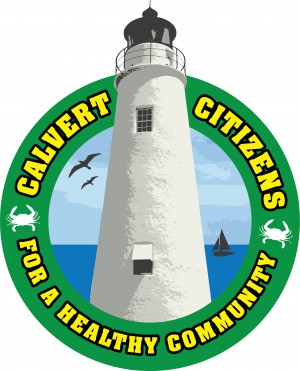Cove Point Opponents Declare FERC and Elected Leaders ‘Guilty’ on Gas Exports in Friday Protests, Vow to Keep Fighting
In ‘People’s Court’ at FERC headquarters, activists ‘convict’ regulators and leaders—from Pres. Obama to Chairman LaFleur to Gov. O’Malley—for selling out people’s safety and the climate
Calvert citizens rally at the home closest to Dominion’s facility, declaring, ‘We have nothing to lose because we have everything to lose’
WASHINGTON, DC—Vowing to continue the fight to block a proposed liquefied natural gas (LNG) export facility at Cove Point in southern Maryland, activists held tandem demonstrations on Friday outside the headquarters of the Federal Energy Regulatory Commission (FERC) and at a home directly across the street from Dominion Resources’ proposed facility in Lusby.
The actions came in response to FERC’s ruling earlier this week to grant Virginia-based Dominion approval to build the $3.8 billion project. Environmental groups are preparing to petition FERC to reconsider this ruling, given the agency failed to conduct a full environmental impact statement or to fully consider the environmental damage that would come from increased fracking or global warming pollution.
A “People’s Court” convened outside FERC headquarters on Friday morning to “convict” federal regulators and elected officials alike who have helped facilitate Dominion’s polluting project. With Patuxent Riverkeeper Fred Tutman presiding as “judge,” FERC Chairman Cheryl LaFleur, President Barack Obama, Governor Martin O’Malley, Congressman Steny Hoyer, U.S. Senators Barbara Mikulksi and Ben Cardin, and the Calvert County Board of County Commissioners all received unanimous “guilty” verdicts.1
View the courtroom photos at: https://www.flickr.com/photos/chesapeakeclimate/sets/72157647915257870/
“The Cove Point ruling is a massive failure of federal regulatory responsibility and of political leadership,” said Mike Tidwell, director of the Chesapeake Climate Action Network. “We’re here to name names, and to show our resolve to keep fighting in the streets and in the courts.”
Later the same day, members and supporters of Calvert Citizens for a Healthy Community (CCHC) held a press conference and demonstration in the front yard of the family home that is Dominion’s closest neighbor in Lusby, Maryland. The southern Maryland residents vowed to re-double their opposition.
“We are appalled that our government officials and agencies show such blatant disregard for the health and lives of fellow Americans by allowing this project to be the first LNG export facility—in the history of the world—to be built in such a highly populated residential area,” said CCHC members in a statement. “Without a complete Environmental Impact Statement (EIS) and Quantitative Risk Assessment (QRA) the hazards of this operation are not fully analyzed, thus there is no way to adequately mitigate and prepare for all possible harm to residents and first responders.”
“At this point, we have nothing to lose, because we have everything to lose. This is not a done deal, it’s merely the beginning of the next chapter,” said Tracey Eno, a spokesperson for CCHC.
On Wednesday, the Baltimore Sun reported on a clear concession by Dominion that the export project—including the first large-scale gas liquefaction train ever built in a residential neighborhood—could bring grave safety dangers to nearby residents. Despite repeated assertions that potential explosion, fire or flammable vapor gas cloud catastrophes would not extend off-site, the company is now “looking into” constructing a new road to serve as an evacuation route. Currently, hundreds of residents would have no escape route apart from driving directly past the Dominion site.
Environmental groups that have intervened in the FERC process will be petitioning FERC for a rehearing of the Cove Point decision within the next 30 days. If FERC refuses to revisit its starkly limited environmental assessment, it is highly likely that groups will pursue legal avenues to sue the agency under the National Environmental Policy Act.
1. The specific charges leveled at regulatory and elected leaders on Friday included:
- President Barack Obama: GUILTY for promoting a destructive “all of the above” energy policy.
- FERC Chairman Cheryl LaFleur: GUILTY for continuing FERC’s legacy as servant of the gas industry—not the public.
- Governor Martin O’Malley: GUILTY for literally falling asleep as citizens pleaded for explosion answers.
- Congressman Steny Hoyer (D-MD 5th District): GUILTY for being Dominion’s chief facilitator for Cove Point pollution and harm to the Chesapeake Bay.
- Senator Ben Cardin: GUILTY for blatant climate hypocrisy in supporting worse-than-coal gas exports.
- Senator Barbara Mikulski: GUILTY for failing to demand a full EIS from FERC.
- Calvert County Board of County Commissioners: GUILTY for giving “sweetheart deals” to Dominion while exposing children to appalling risks.
CONTACT:
Kelly Trout, 240-396-2022, kelly@chesapeakeclimate.org
Mike Tidwell, 240-396-2153, mtidwell@chesapeakeclimate.org
###



